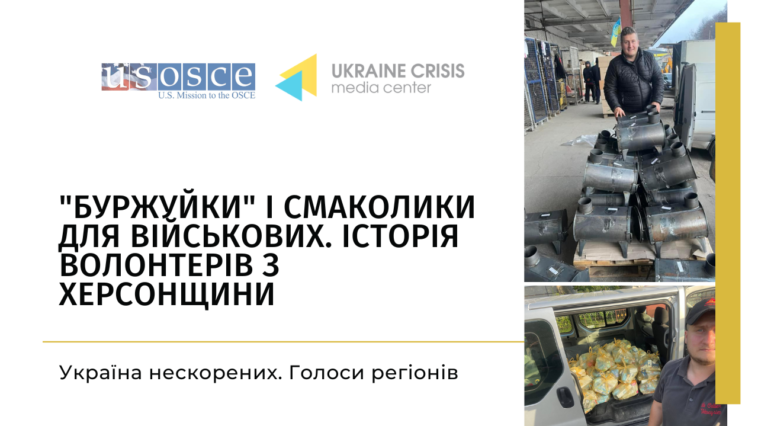The term “potbelly” has two meanings. The first is related to its gluttony and uneconomical nature. The name is derived from the resemblance of the stove to a fat man’s pot belly. As for the second, it means an enlarged, swollen, or protruding abdomen.
Anyway, this small cast-iron stove is considered the most popular heating device of the 20th century. The latest technologies seemed to have confined the “potbelly” to the dustbin of history, but nature took its course – mankind has not found a better way to keep warm in the absence of electricity. Today it is one of the most demanded things for Ukrainians, both those who fight on the frontline and those who support them on the home front. As for production, as we know, there are no “potbelly stove” factories. They are made by those who can. Nor is there a sales service. Instead, there is a reliable and extensive volunteer network.
Oleksandr Kobets and Tetiana Shkodivska left the Kherson region on February 24. “I met the war in the famous Chornobayivka, by the way, the Chornobayivka airfield was among the first who suffered missile strikes. Our decision to leave was influenced by our only wish – not to stay in the occupied area. We didn’t know where we were going, what we were going to do; the main thing was to leave. We invited friends and left. On February 25, we arrived in Ternopil, where we hoped for the support of good friends, and our hope turned out to be true,” says Oleksandr.
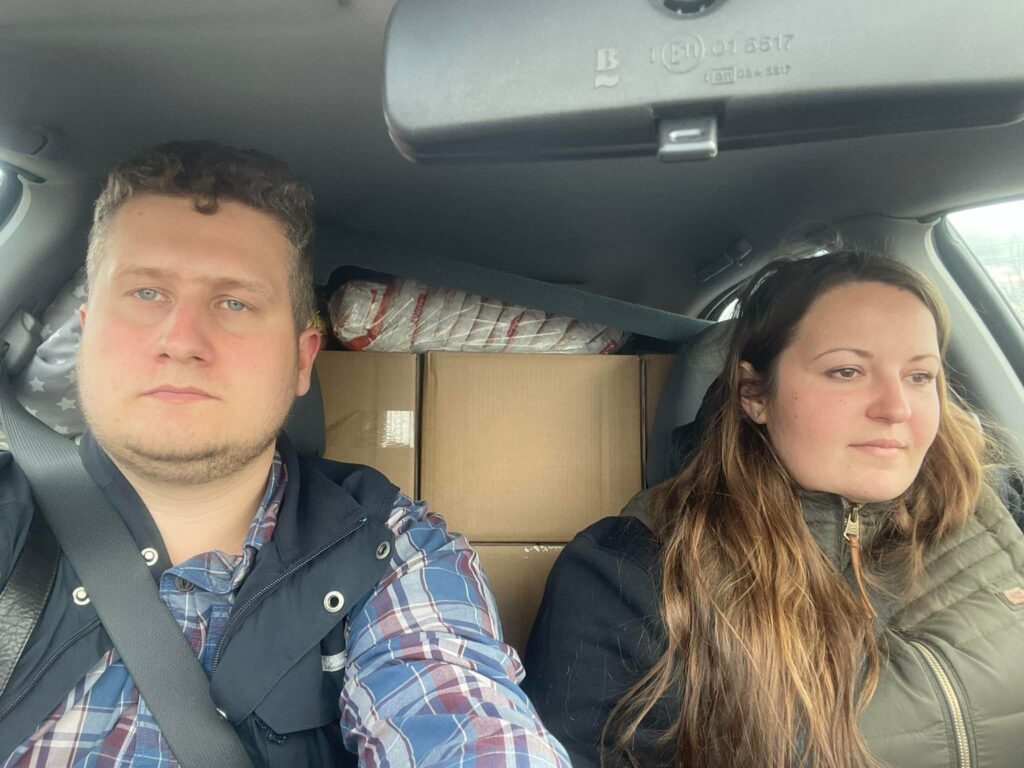
Tetiana recalls the beginning of the big war as follows: “The first days were days of despair, rejection and incomprehension. But the idea of helping the already occupied city came in the first days of spring. We contacted acquaintances from social activities, looked for various options. Some things could be solved at once, others could not.”
Even in peacetime the Kherson volunteers led an active lifestyle. Oleksandr was the executive director at the NGO “Association of the Ukrainian Peacebuilding School”, and Tetiana, after working in the Kherson Regional State Administration, worked in the public sector for a long time.
They began their first humanitarian trips in early April, to help displaced people evacuate to the west of Ukraine, and immediately faced a problem: their car, a hatchback, was too small for humanitarian cargo. They had to ask friends and acquaintances for help, write on social media. Local mass media, both in Kherson and Ternopil, also helped, and a few months later the issue was resolved: they managed to buy a van.
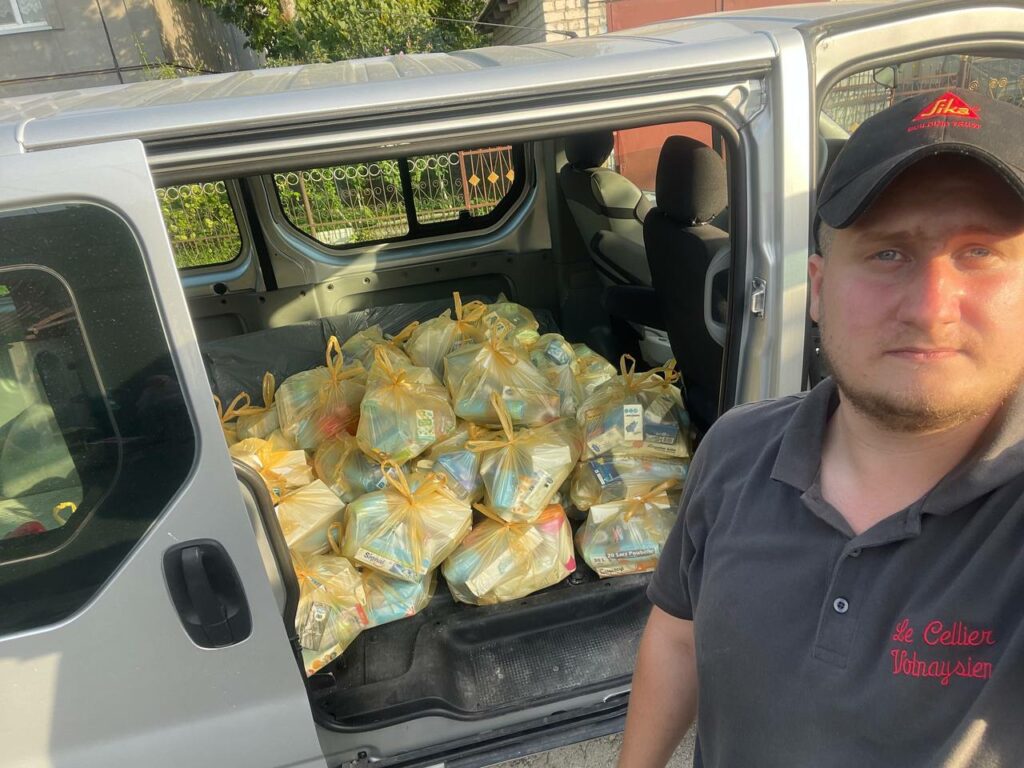
At the end of spring, there was a post on Oleksandr’s Facebook page, which is probably the best description of that spring for Kherson volunteers:
“Well, to begin with – a month before February 24.
Felt, chatted, analyzed, did not believe official information. Prepared.
A week before February 24. Worked, but no concentration.
February 24 – woke up in Chornobayivka, saw smoke from an explosion through the window, realized that it had started. Overslept the beginning. Managed to get away. Cold mind and nickname “Batia” worked.
A week after February 24 – everything is foreign and strange. Doing something for the victory since February 26. Washing gasoline and oil off our hands with snow. Rushing around the outskirts with “cocktails” at night.
A month after February 24. A desire to give up and leave for Canada. True.
Two months after February 24. Full-fledged work.
Today – realized that nothing can be planned. Getting used to everything, doing something to make someone feel better.
Future. We don’t know. We can predict, but we will not do this. It will probably be something new and interesting.
Huge stress.
A recipe for overcoming it… I used the experience of a person I had worked with. You must work. In the wartime, it’s difficult even in places where there’s no shelling. It’s difficult, because some people have gone a little crazy, like you have. But it’s okay)
I want to buy a kayak and go to the water.”
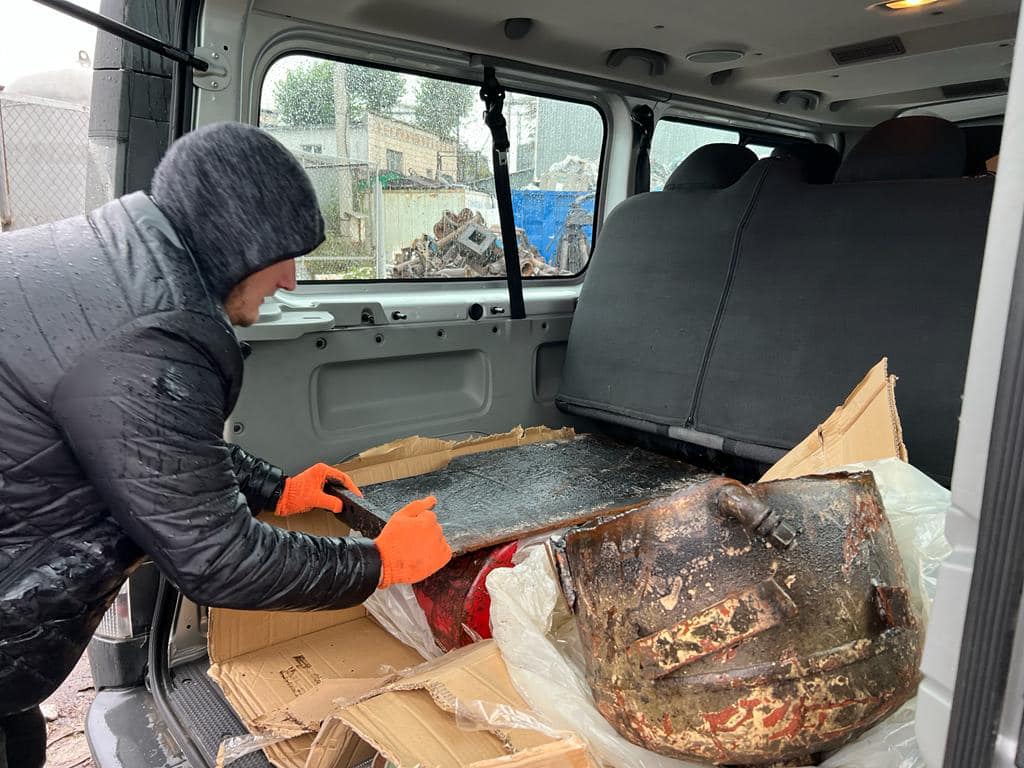
Oleksandr wrote the following: “If you asked me what I want to do in 5 or 50 years, I would answer: help people.”
In the middle of the summer, Oleksandr and Tetiana already helped organize mini-laundries in Mykolayiv, brought humanitarian aid to de-occupied villages of the Mykolayiv region, delivered food and medicines to the occupied Kherson region, and helped organize charity kitchens in Kherson.
“I remember delivering a large batch of insulin to the region, when we had to hide the packages between diapers and baby food. We were very afraid that the occupiers would take away the medicines. Besides, local people often ask for painkillers, antipyretics, anti-colds, blood pressure medicines, drugs for treatment of cardiovascular diseases. It is even more difficult to transport medicines than food. Because you have to maintain an appropriate temperature and ensure the availability of delivery notes, cheques, etc.,” recalls Tetiana Shkodivska.
Late in August, the volunteers expanded their horizons and started making potbelly stoves for our military. “The idea came spontaneously – it was early autumn, evening, cool. It occurred to me that it was even colder in the trenches. And we decided to help our defenders with heating. We understood that it would not be easy to make potbelly stoves from “scratch”, and looked closely at old gas cylinders. In fact, we paid only for grinder disks,” says Oleksandr.
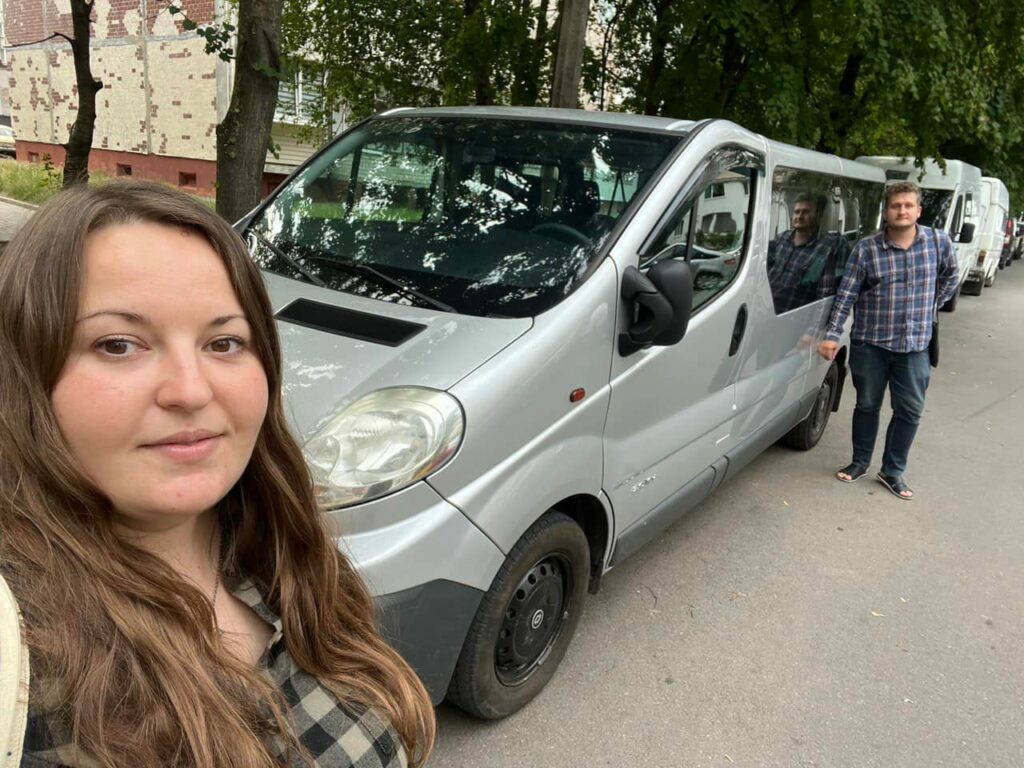
Then they had an idea of dry mixtures for borscht and other dry goodies for the military. They started a new fundraising campaign for a dehydrator (equipment designed for drying meat, fruits, vegetables – ed.). And another victory – a few weeks ago, they purchased the necessary equipment and have already started the process.
The volunteers were at work when they heard that Kherson had been liberated – they were agreeing on the conditions for the manufacture and supply of more than 70 potbelly stoves. We needn’t tell you about their emotions – their home, their childhood, a part of their lives were liberated. In the near future, the volunteers with a humanitarian mission are going to visit Kherson, which they hastily left on February 24, having walked for 9 months along the road of help, which they plan to continue.
Artem Sopov, Kherson – Kyiv
22.11.2022

